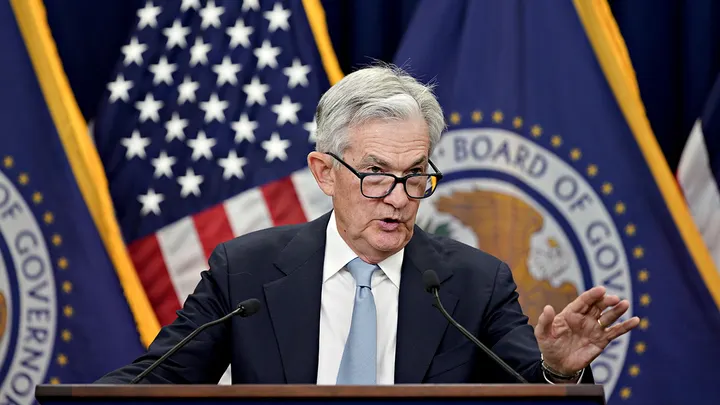Nearly all Federal Reserve officials signaled during their June policy-setting meeting that additional interest rates are likely this year amid signs of sticky core inflation within the economy.
Minutes from the U.S. central bank’s June 13-14 meeting released Wednesday showed that some policymakers voiced support for raising rates in June, although officials ultimately held them steady – and that many are open to lifting them again this year.
“In discussing the policy outlook, all participants continued to anticipate that, with inflation still well above the Committee’s 2% goal and the labor market remaining very tight, maintaining a restrictive stance for monetary policy would be appropriate to achieve the Committee’s objectives,” the minutes said. “Almost all participants noted that in their economic projections that they judged that additional increases in the target federal funds rate during 2023 would be appropriate.”
Officials voted at the meeting to pause their interest rate hike campaign after a string of 10 increases that spanned 15 months, leaving rates unchanged at a range of 5% to 5.25%. However, policymakers also opened the door to at least two more rate increases this year, a surprisingly hawkish projection that left Wall Street scratching its head.
But the minutes indicated that several of the voting Federal Open Market Committee members would have agreed to lift rates for the 11th straight time last month.
Those favoring another rate hike noted “that the labor market remained very tight, momentum in economic activity had been stronger than earlier anticipated, and there were few clear signs that inflation was on a path to return to the Committee’s 2% objective over time,” the minutes said.
In holding rates steady, officials said they would have more time to assess how the rapid-fire increases in the federal funds rate was affecting the broader U.S. economy amid fears that tighter monetary policy could trigger a recession.
In the weeks since then, several Fed officials – including Chair Jerome Powell – have signaled that rate increases are likely to continue as government data points to a slow retreat for inflation.
“We did take one meeting where we didn’t move,” Powell said during an event held by the Spanish central bank in Madrid last week. “We expect the moderate pace of interest rate decisions to continue.”
The probability that the Fed delivers another rate hike this month rose to more than 88% on Wednesday, according to the CME Group’s FedWatch tool, which tracks trading. That compares to about 11% of traders who expect the Fed to hold rates steady at the current range of 5% to 5.25%.
Hiking interest rates tends to create higher rates on consumer and business loans, which then slows the economy by forcing employers to cut back on spending. Higher rates have helped push the average rate on 30-year mortgages above 7% for the first time in years. Borrowing costs for everything from home equity lines of credit, auto loans and credit cards have also spiked.
While Fed officials have lauded the surprising resiliency of the economy in the face of higher interest rates, the central bank’s own staff economists maintained that a mild recession is likely to begin later this year. However, they suggested that it is possible the economy averts a downturn – a change from their prediction earlier this year.
“The economic forecast prepared by the staff for the June FOMC meeting continued to assume that the effects of the expected further tightening in bank credit conditions, amid already tight financial conditions, would lead to a mild recession starting later this year, followed by a moderately paced recovery,” the minutes said.

